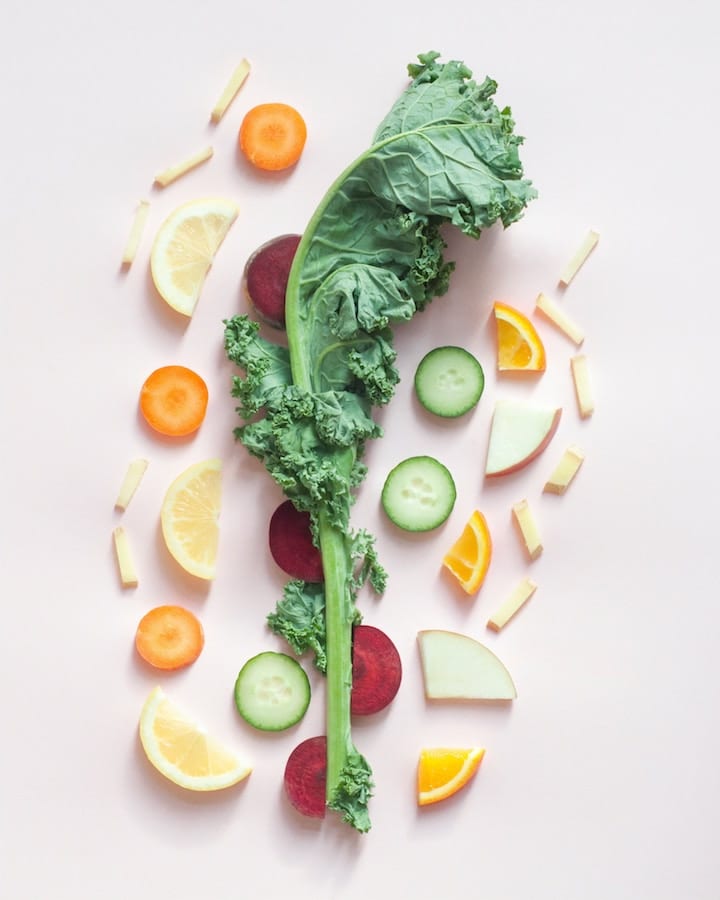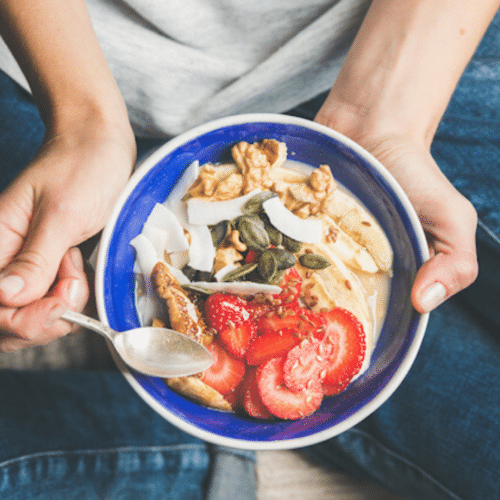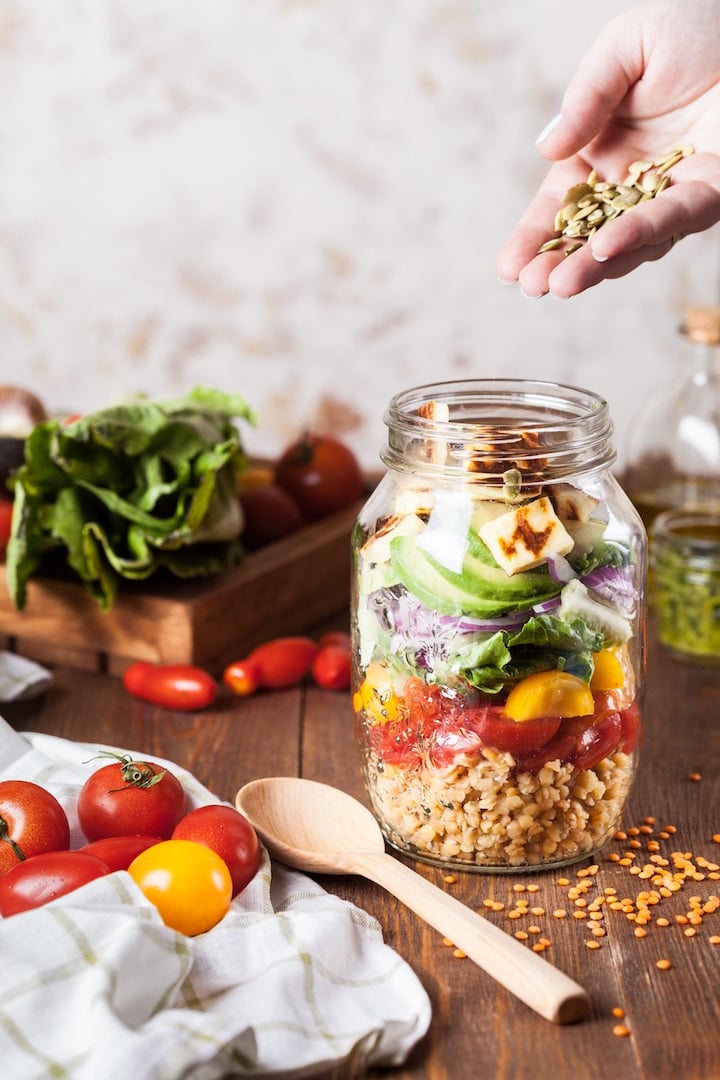Looking for all-natural ways to strengthen your immune system?
It’s flu season, which means we’re taking precautions to make sure we don’t fall sick anytime soon. Being under the weather doesn’t only bring down your productivity, it also affects your mood and energy levels. While you can reduce your risk of catching the flu by getting vaccinated, you can also consider eating a well-balanced diet by incorporating foods with nutrients that contain immune-boosting properties.
Read more: Swap Your Starbucks For One of These Healthy Holiday Alternatives

Vitamin C
One of the most sought-after nutrients that help to maintain a healthy immune system, vitamin C is found in many vegetables and fruits, including broccoli, kale, bok choy, gai lan, tomatoes, sweet peppers, oranges, kiwis, grapefruits, guavas, strawberries and blueberries. In addition to its immune boosting properties, vitamin C is water-soluble and an antioxidant that helps prevent cell damage and may reduce your risk for certain types of cancers and other chronic diseases. Furthermore, it may help reduce levels of cortisol (the “stress hormone”) in your body. In other words, if you eat a variety of vitamin C-rich foods as part of your diet, you may help your body to reduce unnecessary stress and, in turn, improve and strengthen your immune system.
You’re likely to be eating foods with vitamin C on a daily basis, but here are some easy tips to include them as part of your diet:
- Keep easy-to-peel fruits such as oranges and grapefruits by your desk at the office.
- Enjoy a leafy green salad instead of a hot meal for a change. You can also add quinoa and lean meats or tofu for added protein, and sliced fruits such as strawberries, pears and mandarin oranges for extra flavour and dietary fibre.
- Add extra vegetables such as sweet peppers to your favourite pasta dishes.
- Keep the potato skin on when you make your next creamy mash.
Read more: Suffer From PMS? These Tips From A Registered Dietitian Could Help
Selenium
Selenium is another notable antioxidant that helps to maintain a healthy immune system and prevent cell damage. It’s commonly found in beef, oysters, shrimps, crabs, salmon, sardines, mackerel, herring, trout, tuna, mushroom, couscous, chia seeds and sunflower seeds. However, the best and highest selenium source is found in Brazil nuts. In fact, for every five Brazil nuts, there is 340mcg of selenium.
To incorporate selenium into your diet, try the following:
- Enjoy unsalted brazil nuts as a healthy snack. While they have the highest selenium content and are a good source of polyunsaturated fatty acids (a type of good fat), they are calorie dense. Eating too many can increase your intake of extra and unnecessary calories and fat. To keep your portions in check, have no more than more than ¼ cup of Brazil nuts or mixed nuts at each sitting.
- Try couscous as a change for your source of grains during meals. Simply switch it up with rice for dinner, or add couscous to your leafy green salads for added nutrients, crunch and texture.
- Give your oatmeal, porridge and homemade bread and scones a nutty texture by adding chia seeds.
Read more: The Best Pre And Post-Workout Foods, According To A Registered Dietitian
Zinc
No matter how old you are, zinc is an important nutrient that helps with growth and development. More importantly, it helps to strengthen your immune system and plays a pivotal role in healing wounds. One of the richest sources of zinc is oysters. For every 75 grams of oysters, there are at least 25 grams of zinc. Other food sources with zinc include meats, seafood, dairy products, legumes, nuts such as peanuts, almonds, cashews and seeds such as pumpkin seeds.
Having zinc-rich foods as part of your diet cannot get any simpler. Here are some practical tips:
- Plan an oyster night at home. While raw oysters taste fresh and briny with a buttery texture, they can also be eaten fully cooked.
- Include meats, poultry, fish or beans in your meals, which are also rich in protein.
- Spread a thin layer of any nut butter on your favourite whole grain toast for breakfast and whole grain crackers for your mid-morning and afternoon snacks. A healthy serving size of nut butter spread is one tablespoon.
- If you’re a vegetarian or simply want to make a quick and easy meal, use a blend of beans such as chickpeas, lentils, kidney beans, black beans and peas to make a hearty soup.
Read more: A Registered Dietitian’s Guide To Eating Out (And Still Enjoying Yourself) In Hong Kong
Bottom Line
Vitamin C, selenium and zinc play a vital role in maintaining a healthy immune system. Together, they create a nutrient powerhouse for your immune system for protecting you from, and fighting effectively against, the common cold, flu and other illnesses. Start the new year and breeze through the rest of winter by eating well with the foods mentioned!
Editor’s Note: This post was originally published in January 2018 by Novella Lui and was updated in December 2019.
Featured Image courtesy via Getty, image 1 courtesy of Dose Juice via Unsplash, image 2 courtesy of Mariana Medvedeva via Unsplash, image 3 courtesy of Sweet Ice Cream Photography via Unsplash.





 Eat & Drink
Eat & Drink



 Travel
Travel



 Style
Style



 Beauty
Beauty



 Health & Wellness
Health & Wellness



 Home & Decor
Home & Decor



 Lifestyle
Lifestyle



 Weddings
Weddings








